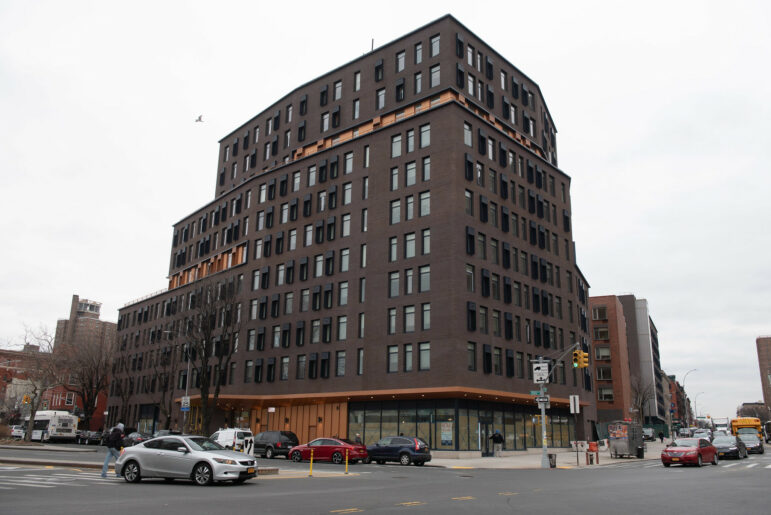The New York City Department of Homeless Services has redefined its mission over the last two years from merely providing emergency shelter to actively preventing homelessness. But the agency’s budget plan for next year has advocates questioning the city’s commitment to prevention.
In 2003, DHS gained control of the city’s legal services contracts — designed to help tenants avoid eviction — and assured advocates that the programs would be funded. But when the mayor’s executive budget was released April 26, the contracts, worth over $5 million, were absent.
“I feel hoodwinked,” said Councilmember Gale Brewer. “I was under the impression there was an agreement, and that everything put into [DHS Commissioner] Linda Gibbs’ shop would be line-itemed. I was shocked when it wasn’t.”
Jim Anderson, a spokesperson for DHS, said no such agreement had been made. “The only deal was that we would strengthen and advance the city’s homeless prevention efforts,” he said. “The programs in question are council programs that the council historically funds on an annual basis. We absolutely hope the council continues to support these critical programs.”
Meanwhile, Anderson noted, the executive budget includes nearly $20 million for other homelessness prevention programs under DHS control. He cited the agency’s New Household Stability Initiative, which targets six neighborhoods with high homeless populations, and a study, to be released in the next six to eight weeks, on how to end chronic homelessness.
Patrick Markee, senior policy analyst at the Coalition for the Homeless, said those programs, even in combination with prevention services still under the Human Resources Administration, fall short of meeting the city’s need for a sustained, coordinated effort. In February, using figures provided by the Independent Budget Office, the coalition discovered that spending on prevention programs had actually declined under Bloomberg, from $145 million in fiscal year 2001 to $135 million in fiscal year 2003.
“The question is, are homelessness prevention legal services effective or not?” Markee asked. “The answer is yes, and they are underfunded. It’s really disingenuous for the administration to say at once that these are effective programs and not baseline them.”
Markee and other homeless advocates had hoped to avoid what has become an annual battle. “We get treated the same way every year,” said Andrew Scherer, executive director of Legal Services for New York City. “The contracts aren’t part of the mayor’s budget, and the City Council goes to bat for us to get funding restored.” Having to make their case every year is a hardship for service providers, he explained.
“It makes legal services programs much harder to staff and manage. I’m always worried about whether we’re gonna get funded,” said Adam Weinstein, director of the Goddard-Riverside West Side SRO Law Project. Already, Legal Aid of New York has announced that it may need to lay off staff due, in part, to these concerns.
On Thursday, Gibbs can expect tough questions at a City Council hearing about the mayor’s budget. Though the council will almost certainly restore legal services, Brewer said, City Hall shouldn’t rely on that: “It sends the message that the administration is not really serious.”








